In accordance with the Federal definition of a credit hour, for one semester hour of credit, a traditional lecture course shall meet a minimum of 750 minutes. Final exam periods may be counted as class time when computing required minutes. This basic measure may be adjusted proportionately to reflect modified academic calendars and formats of study. Academic programs can exceed the minimum standards within reason provided a rationale is given and approved by the Academic Dean. In general, one credit hour entails one hour of classroom time and two hours of out-of-class preparation (including reading, homework, and examination study) per week over a 15-week semester. Faculty should keep this credit hour policy in mind when setting course expectations for students. Semester credit hours are granted for various types of instruction as follows:
- Lecture, seminar, quiz, discussion, recitation
A semester credit hour is an academic unit earned for fifteen 50-minute sessions of classroom instruction with a normal expectation of two hours of outside study (including reading, homework, examination study) for each class session. Typically, a three-semester credit hour course meets for two 75-minute sessions per week for fifteen weeks for a total of 30 sessions (or 2,250 minutes). If the course requires a final exam, the exam period may count as class time.
- Activity supervised as a group with little or no outside preparation (practicum classes, vocational workshops)
A semester credit hour is awarded for the equivalent of thirty periods of such activity, where each activity period is 75 minutes or more in duration with little or no outside preparation. Where such activity involves substantial outside preparation by the study, a reduction may be made in the required in-class time. The outside activities must be documented on the course syllabus and the revised credit hour designation must be approved by the Academic Dean.
- Supervised individual work (independent study, directed study, or directed reading)
Credit for independent work (defined as study which is given initial faculty guidance followed by repeated, regularly scheduled individual student conferences with a faculty member, and periodic as well as final evaluation of student performance) will be awarded on the basis of one semester hour credit for each equivalent of fifteen contact hours of regularly scheduled instructional sessions. Equivalency will be determined by the Academic Dean and documented in the syllabus.
- Experiential Learning – Internships and Field Education
Practicums and Field Education experiences are an integral part of a seminarian’s education and provides them with practical experiences. As such, one semester credit hour may be awarded for each 40 hours of supervised learning acquired outside the institution.
- Clinical Pastoral Education (CPE) Credits
While STPSU does not require CPE units as part of its Field Education requirements, Clinical Pastoral Education is highly recommended for every student. The student’s own diocese should arrange this during one of the summers. As an extension of the Field Education program, St. Patrick’s will grant two units of Clinical Pastoral Education to a student who successfully completes a full quarter of CPE at an accredited CPE program. These units may substitute for two credits of the regular Field Education requirements, at the recommendation of the Director of Field Education and the discretion of the Academic Dean. Students must submit certified documentation of completion of the CPE program to the Academic Dean and the Director of Field Education.
- Credit by Examination
Upon approval by the Academic Dean, credit may be granted for some courses in the current catalog through successful completion of a special examination without regular class attendance. Approval is granted usually in cases when the Academic Dean judges that the student has an adequate background in the subject matter through personal study, catechetical experience, or other formation or educational experience. Credit earned in this fashion will satisfy degree and certificate requirements in the same manner as credit earned through regular class attendance. If the student passes the examination, the course will be recorded on the transcript with a “CR”. The student’s GPA will not be affected.
- Short Sessions
Shortened academic sessions (including condensed semesters, intersession classes, or summer classes) are expected to maintain an equivalent amount of time (contact and outside of class time) as those classes in the 15-week format.
- Online/Hybrid Courses
For hybrid or online delivery modes, the course will be designed and expectations established so that in order to achieve satisfactory performance, students will spend the equivalent of fifteen 50-minute periods per semester per credit per course and the appropriate amount of outside of class time engaged with the course material in a combination of ways such as: completing online modules, reading articles or text, viewing recorded lectures, completing assignments, presentations, synchronous or asynchronous discussion with the instructor or other students, taking exams, group projects, service learning, and other activities that include instructor interaction and involvement. Compliance with this policy will be documented on the course syllabus.
Periodic Compliance Review of Credit Hour Policy
In order to ensure that STPSU is in compliance with Federal and accrediting agency guidelines, the Registrar’s Office will review approximately 25% of syllabi each semester to make sure the credit hour assignments are appropriate for the amount of class time. The Academic Dean and Department chair will be notified if there is a violation of the policy so that the issue can be rectified.
